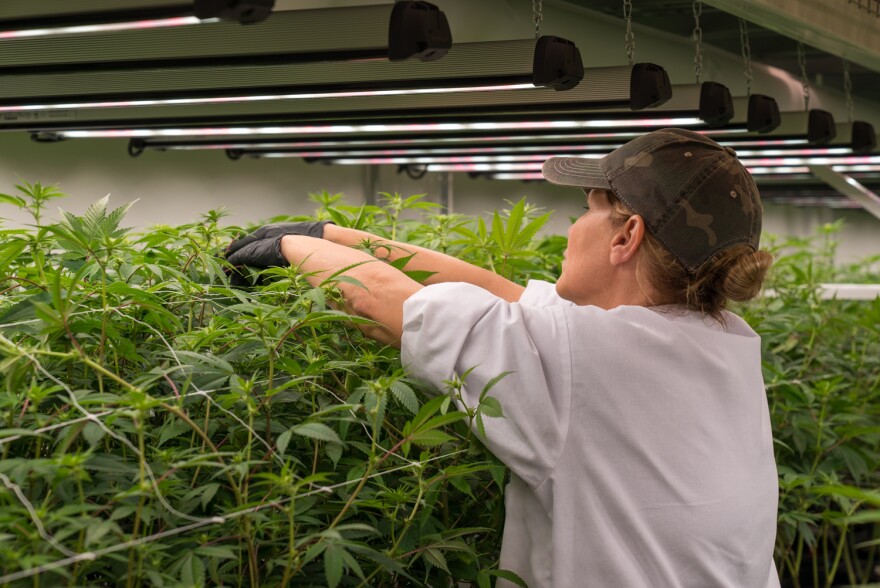BELLEVILLE — Illinois’ new recreational marijuana market is off to a hot start even amid the spread of coronavirus. Earlier this week, the state announced nearly $36 million worth of legal cannabis was sold in March — on par with numbers from February.
March may be two days longer, but it was also when the coronavirus outbreak worsened in Illinois and the rest of the country. Gov. J.B. Pritzkerordered all nonessential businesses to close and residents to stay at homepartway through the month.
Medical cannabis facilities areclassified as essential health care and public health operationsunder Pritzker’s order.
“We can keep our doors open, and we’ve seen an uptick,” said Michael Perlman, executive vice president of investor relations and treasurer atJushi Holdings. “More folks are coming in, so our stores are performing quite well.”
But keeping dispensaries open amid the outbreak also means the state willcontinue to face some product shortagesas the new market matures.
“I don’t believe it’s going to (shore) up anything,” said Sammy Dorf, chief growth officer of Verano Holdings LLC. “Sales are pretty strong across the board.”
Product shortages are expectedwhen a state first launches a recreational cannabis program.In Illinois, most cultivators are focused on getting any kind of product to store shelves, said Bethany Gomez, managing director at Brightfield Group, a market research and consumer analytics firm that focuses on the legal cannabis industry.
“Everything is selling out right away,” she said. “There’s just this big push to even meet demand and get any product on shelves. Anything that hits will move.”
Illinois’ supply-and-demand issues are a result of the state's approach to its recreational market —state officials wanted to begin with a smaller market.
“There’s product supply shortages, and that will really continue certainly through the next six months, probably over the next year, though,” Gomez explained. “But that’s not necessarily a bad thing.”
She points to Oregon, which issued far too many growing licenses and wound up with amassive oversupply of cannabis.Most licensed cultivators in the state are also working to meet demand in the state, but it takes time to expand facilities and grow new plants.
“Everybody is expanding right now,” Dorf said. “The adult-use market popped up pretty quickly, and the minute we saw it coming, everybody started expanding their facilities to meet the demand.”
Gomez added Illinois' massive demand for cannabis will help smaller and mid-sized companies begin to operate in the state. New licenses for dispensaries and craft growers will be awarded in May.
“For those smaller and mid-sized companies, there will still be a lot more demand than is supply, which gives them a built-in audience,” she said.
Illinois will face cannabis supply challenges for the foreseeable future, Gomez said.
“Typically, it’s about 18 months from when the first dispensaries open their doors to the time that supply is meeting demand,” she said. “We’ll be looking at the middle of next year by the time the market really matures.”
Eric Schmid covers the Metro East for St. Louis Public Radio as part of the journalism grant programReport for America, an initiative of the GroundTruth Project. Follow Eric on Twitter:@EricDSchmid
Send questions and comments about this article to:feedback@stlpublicradio.org
Our priority is you. Support coverage that’s reliable, trustworthy and more essential than ever. Donate today.
Copyright 2021 St. Louis Public Radio. To see more, visit St. Louis Public Radio. 9(MDA3OTgyNDI4MDEzMTM0MjQzMTZlNDI0Mg004))


